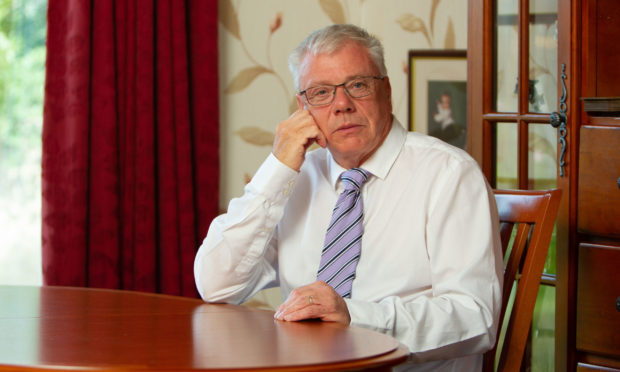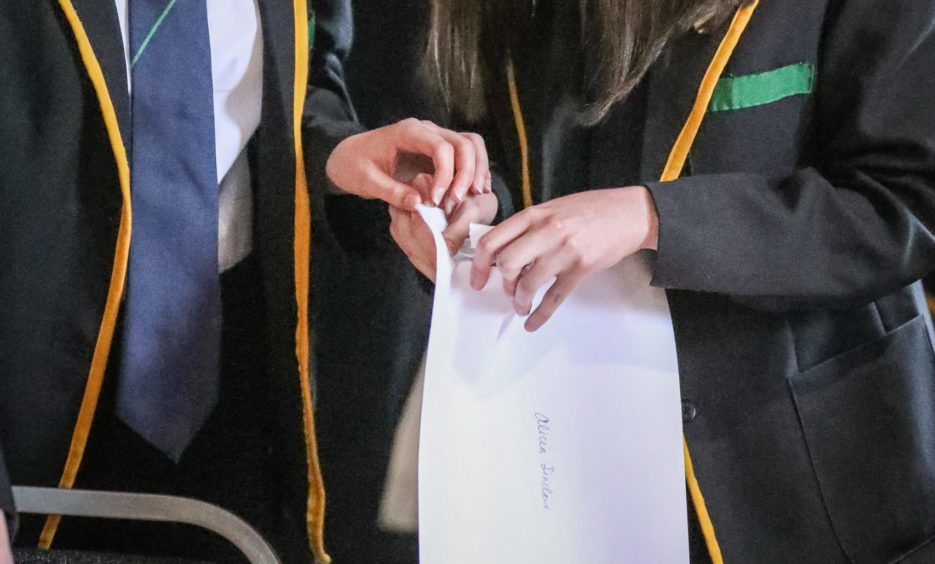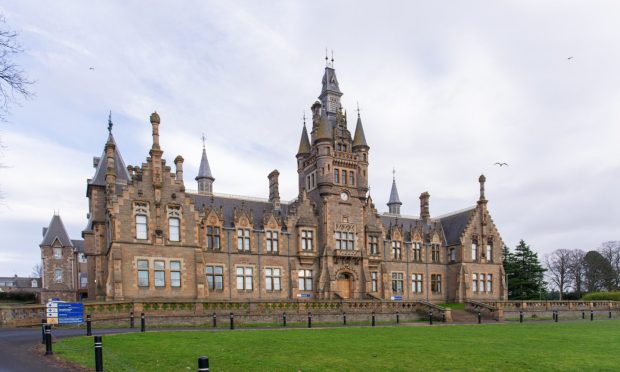The Scottish Qualifications Authority’s downgrading of pupils’ results is a “great cause for concern”, according to a retired Angus depute headteacher.
Robert Funai taught mathematics for 40 years at eight different schools across Angus, Ayrshire and Dundee, latterly as depute head at Brechin High until 2016.
He now tutors pupils in Dundee with Robertsons Education Centre, based in Broughty Ferry.
Despite equal ability in maths, he said two pupils from contrasting areas of the city were awarded different grades, which led him to write to local politicians for help.
He has asked Dundee’s politicians to consider whether there is an “inherent bias” from the SQA as many pupils from poorer backgrounds saw their grades reduced.
This year’s exams were graded on teacher estimates from coursework and prelims and adjusted by the SQA based criteria including historic school results.
More than 133,000 results were adjusted, the vast majority were downgraded.
There was a 15% gap between the actual and estimated pass rates for children in the most deprived areas, compared to 7% for those in the least deprived areas.
“Having taught and witnessed success and failure across a wide range of schools it is incomprehensible to me how this disparity can be.”
Robert Funai, Brechin High’s former depute head.
Mr Funai wrote: “When teaching I taught mathematics in the following schools: Belmont Academy, Auchinleck Academy, Linlathen High School, Harris Academy, Rossie Secure School, Montrose Academy, Brechin High School and Arbroath Academy.
“Each of these schools is completely different in the environment in which they sit or sat as well as the demographic which they serve or served.
“Pupils in all of these schools had various levels of ability but all had those who were successful and those who were less so. Those that worked hard, irrespective of their environment and demographic, were successful.
“The results for this past academic session (2019-20) would give great cause for concern and alarm to all those with a keen interest in educating our young people.”
Mr Funai has asked Dundee politicians MSPs and MPs to consider which schools gained the most from the examination boards grading system.
He added: “I would like an explanation as to how it is possible for two young people from two different schools from different demographic areas and who produce top quality work in mathematics be awarded grades if the evidence and teacher estimates are the same?
“For me there can only be one answer: The school attended by these young people.
“I have seen some of the evidence and know it to be very strong when comparing it to previous standard and requirements set out by the SQA.
“Having taught and witnessed success and failure across a wide range of schools it is incomprehensible to me how this disparity can be.”
The Scottish Government has defended the results, claiming it was necessary to ensure credibility.
The SQA said this year’s results saw an increase in the number of disadvantaged young people gaining Highers.
A spokesman said: “We believe we have delivered fairness to learners, through a consistent, evidence based approach in the absence of exams.
“We have maintained the integrity and credibility of our qualifications system, ensuring that standards are maintained over time, in the interest of learners, through judicious moderation of grades.
“The most disadvantaged young people have achieved better results in 2020 compared to both 2019 and the average results for the last four years.
“At grades A to C, the attainment gap between the most and least disadvantaged young people is also narrower this year for National 5, Higher and Advanced Higher than for last year or the average gap for the last four years.”
Pupils who did not receive the grade they were expecting can use the SQA’s free appeal service.











